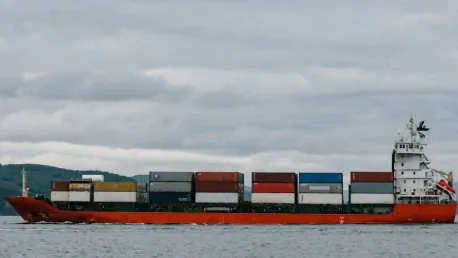As 2025 approaches, the maritime shipping industry braces for potential disruptions following a tumultuous 2024. The previous year was marked by multiple crises that affected global trade routes and port operations, leaving stakeholders wary of what the future holds. Despite recent relief from a narrowly avoided strike at East and Gulf Coast ports, thanks to a tentative contract agreement between the International Longshoremen’s Association (ILA) and the United States Maritime Alliance (USMX), the industry continues to face myriad challenges. These challenges include missile attacks in the Red Sea and droughts affecting the Panama Canal, which have hindered large ships’ ability to navigate. The looming uncertainties in the maritime sector necessitate that importers and shipping companies be thoroughly prepared for continued disruptions.
Experts like insurance lawyer Steve Raptis emphasize the critical need for importers to scrutinize their insurance policies to understand their coverage limits, particularly concerning business interruption coverage. Raptis points out that standard property policies with business interruption clauses often do not encompass events such as strikes unless there is accompanying physical damage or loss. Darin Miller, national marine manager at Sedgwick, echoes this view, noting that a significant number of claims are denied because delays are usually caused by external factors like strikes, terrorism, and weather events, which are not considered coverable losses under most policies. Understanding the limitations of their insurance coverages is paramount for importers to adequately prepare for and mitigate potential disruptions.
Proactive Risk Management Strategies
Experts, including Raptis and Miller, firmly believe that shippers need to engage in proactive risk management to navigate the unpredictable landscape of maritime shipping. One key strategy is securing specialized insurance products, often referred to as supply chain insurance, which provide coverage for strike-related disruptions. Supply chain insurance is tailored to cover losses such as net profits that cannot be realized due to the inability to load and unload ships during a strike. This specialized coverage can fill the gaps left by standard property policies, offering a layer of protection against specific disruptions that might otherwise leave businesses vulnerable to significant financial loss.
Beyond acquiring specialized insurance, proactive risk management involves staying informed about the ongoing and emerging challenges within the industry. This includes monitoring geopolitical tensions, environmental changes, and other factors that could impact shipping routes and port operations. By staying ahead of potential threats, importers and shipping companies can develop contingency plans, such as diversifying their supply chains, securing alternative routes, and collaborating with other stakeholders to ensure continuity of operations. The overarching goal is to build resilience against the multifaceted risks that characterize the contemporary maritime shipping environment.
The Importance of Strategic Planning
The consensus among industry experts is that meticulous planning and securing appropriate insurance coverage are crucial for navigating the ongoing volatility within the maritime shipping industry. Importers and shipping firms must stay informed about the industry’s evolving landscape, manage risks creatively, and seek out specific insurance products that address the unique challenges anticipated in 2025. By doing so, they can better mitigate risks related to strikes, missile attacks, canal droughts, and other external factors that have the potential to disrupt supply chains and impact their operations.
Moreover, strategic planning also involves regularly assessing and updating contingency plans to reflect the latest developments in the industry. This includes conducting risk assessments to identify vulnerabilities within the supply chain, implementing risk mitigation measures, and training employees to respond effectively to disruptions. Additionally, fostering strong relationships with insurers, suppliers, and other stakeholders can facilitate smoother communications and quicker resolutions in times of crisis. The overarching theme is to create a robust framework that enables businesses to adapt and respond to unforeseen challenges, ensuring continuity and resilience in their operations.
Conclusion: Forward-Looking Resilience
As 2025 nears, the maritime shipping industry is preparing for potential upheavals after a rocky 2024. Last year saw numerous crises disrupting global trade routes and port operations, causing concern about future issues. There was some recent relief from a narrowly avoided strike at East and Gulf Coast ports, thanks to a tentative contract deal between the International Longshoremen’s Association (ILA) and the United States Maritime Alliance (USMX). However, the industry still faces significant challenges. These include missile attacks in the Red Sea and droughts impacting the Panama Canal, obstructing large ships’ passage. As uncertainties loom, importers and shipping companies must be ready for ongoing disruptions.
Experts like insurance attorney Steve Raptis stress the importance of importers reviewing their insurance policies to understand their coverage limits, especially regarding business interruptions. Raptis highlights that standard property policies with business interruption clauses typically exclude events such as strikes unless there is physical damage. Darin Miller, national marine manager at Sedgwick, agrees, noting many claims are denied since delays from strikes, terrorism, or weather events are not covered by most policies. Knowing these insurance limitations is critical for importers to effectively prepare for and mitigate potential disruptions.









